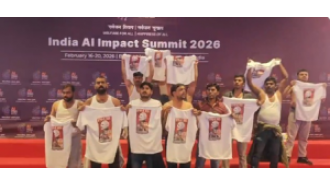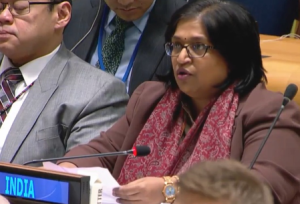Throwing objects at politicians, including something as seemingly harmless as a milkshake, can have serious consequences.
Imagine being a politician in 2024.

The recent case involving Victoria Thomas-Bowen, who threw an object at Nigel Farage during the election campaign, has shed light on a growing issue in our democracy – the abuse and intimidation of our elected representatives. As someone who works closely with this topic, I feel it is important to explain the significance of this case in the context of this concerning trend.
When the attack in Clacton occurred, I was disheartened to see people downplaying its severity. As the Civility Commission Manager at The Jo Cox Foundation, I know firsthand that this type of behavior poses one of the biggest threats to our democracy in the UK.
Imagine yourself as a politician in 2024. You operate in an environment where two of your colleagues, Jo Cox and Sir David Amess, have been tragically killed while carrying out their duties. Others have survived assassination attempts and many more receive regular abuse. It has become a part of your staff's daily routine to filter through threats on your social media accounts. And if you are a woman, the abuse you receive is often targeted and sexist. It's even worse for women who belong to ethnic or religious minorities.
Walking in public can also be a daunting experience for politicians. They never know if someone approaching them is a constituent with important casework or a potential threat holding a weapon. This is not just a local issue, as political violence is becoming increasingly common and even accepted globally.
The fact that both Jo Cox and Sir David Amess were murdered in their constituencies highlights the need for better security measures for politicians. Despite some progress in this area, the spectrum of violence, abuse, harassment, and intimidation still poses a threat to democratic debate.
For example, a recent survey by the Electoral Commission found that over half of candidates in this year's local elections experienced abuse. And nearly half of the women who responded said they avoided discussing controversial topics due to security concerns.
Of course, the public has the right to protest and criticize politicians. But when this crosses the line into abuse, it hinders accountability. The media coverage of the incident involving Nigel Farage focused on the milkshake rather than the political debate, which is a clear example of how this issue is often overshadowed by sensationalism.
Politicians themselves have a responsibility to practice respect and promote a better political culture. Through the Jo Cox Civility Commission, we work towards addressing abuse and promoting civility in politics. Our call to action, with 28 recommendations, includes the suggestion that all elected representatives should model good behavior, especially those in leadership roles.
That's why we created the Civility Pledge, in collaboration with Compassion in Politics, to encourage politicians and the public to commit to respectful discourse. We believe that change is possible and we work alongside other organizations and sectors to bring about this change.
We do this work not just because of the tragic way Jo Cox died, but because of the values she stood for. Our vision is a political culture where diversity is celebrated, and healthy debate brings us closer together, as Jo famously said, "we are far more united and have far more in common than that which divides us."
It all starts with each of us. So I urge you to reflect on how you interact with those you disagree with, and remember that engaging in robust debate is far more productive than resorting to violence or abuse. Do you have a story to share? We would love to hear from you. Let's continue this conversation in the comments below.










